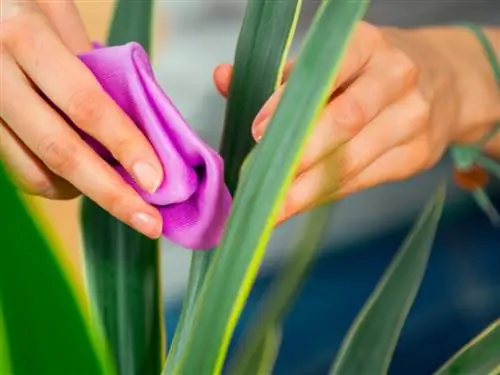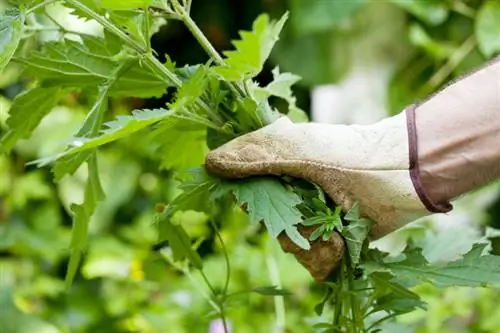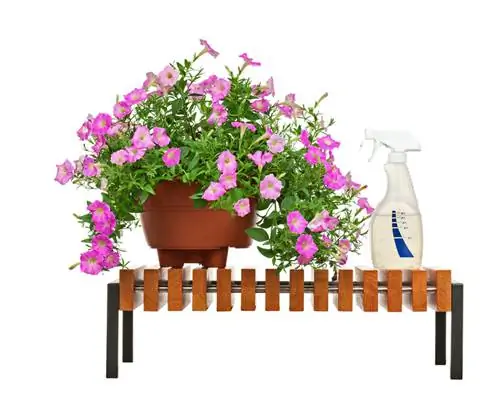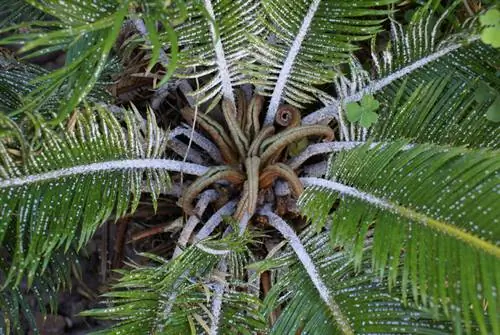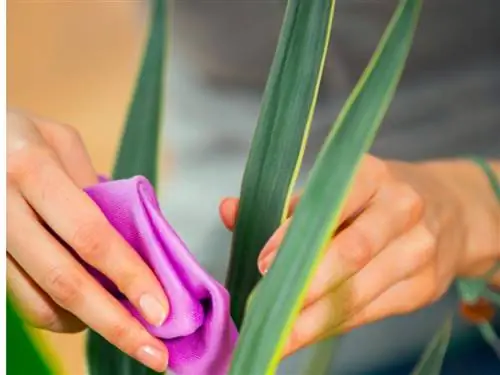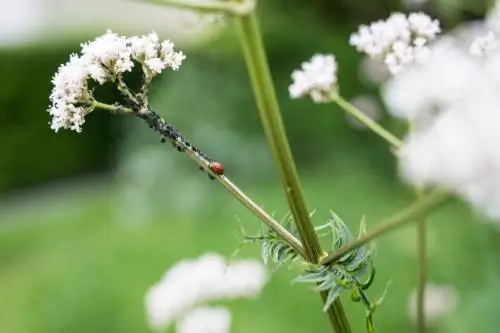- Author admin leonars@hobbygardeners.com.
- Public 2023-12-16 16:46.
- Last modified 2025-06-01 06:02.
In general, the yucca or palm lily is a fairly undemanding and easy-care plant - ideal for the living room or bedroom at home. But like any other plant, the yucca can also catch pests, with plant lice such as aphids, mealybugs and scale insects being particularly common. Plants that are suboptimally supplied and therefore weakened are usually attacked.
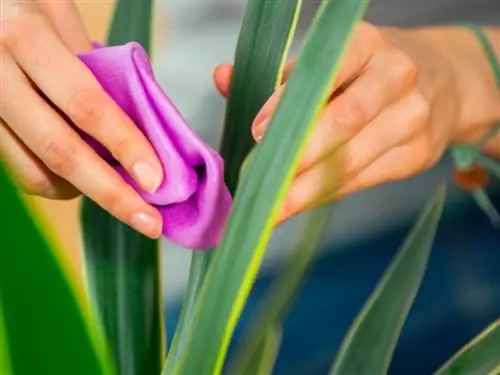
How do I fight lice on the yucca palm?
If there is a lice infestation on the Yucca palm, natural methods such as showering, spraying tea tree oil solution (10 drops in 1 liter of water) or wiping it with dishwashing water help. Distinguish between scale insects, mealybugs and aphids and separate infected plants to avoid spreading.
Identifying and treating a lice infestation
The various plant lice are sucking insect pests that prefer to sit on the undersides of the leaves and pierce the leaf veins there. An infestation of the yucca often only becomes apparent through strangely sticky leaves, and the ground beneath the plant can also be covered by a sticky mass. Furthermore, deformations on leaves and shoots, spots, traces of feeding or stunted growth provide valuable information. The animals themselves are often very difficult to recognize - their tiny size ensures that they remain undetected for a long time. The pests can be combated in various ways, although you should only use the poison bottle if nothing else works:
- Stripping or showering (for aphids)
- remove infected leaves and shoots (if the infestation is light)
- Spray the affected plant with a mixture of tea tree oil and water (10 drops per liter of water, very good for scale insects and mealybugs)
- Wipe affected plant with dishwashing water (a few drops of dishwashing liquid such as Pril etc. in lukewarm water)
Which lice prefer to settle on the yucca?
The following three types of plant lice in particular are often found on the yucca. Separate infected plants immediately to prevent spread.
Scale insects
The tiny scale insects can be recognized by their brownish, hard “shells” - these look more like small brown “eggs” to the naked eye. They can be easily combated with biological oil-based agents (e.g. rapeseed or tea tree oil).
Mealybugs
Mealybugs or mealybugs are surrounded by cotton-like, whitish wax secretions. Here, too, you should dab the affected areas with tea tree oil or spray the affected plant with a solution based on tea tree oil.
Aphids
Aphids can be green, yellow, brown or even black and primarily attack the soft parts of plants such as young leaves and shoot tips. Shower the affected plant thoroughly and spray it with a tea tree or lavender oil-based solution.
Tip
If you still want or need to use poison, never treat the plant inside the home. Instead, place them on the balcony or in the garden and follow the prescribed safety rules!

